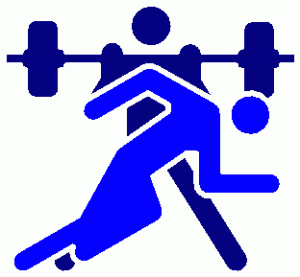The Will to Win

sandhillsoftware.com
How far would you go to win? Would you go days without eating in order to face an easier competitor? Would you take drugs? In the past few years, added pressure has been put on student athletes to excel in their sport and attract scholarships from top-tier universities. This has benefited high school sports in creating more attention and respect for them, but it has also driven some students to extremes to try and beat their opponents.
Although the amount of scholarships given to athletes varies by sport, roughly only about 5 to 10 percent of high school athletes end up playing for a college sports team. Participation in school-sanctioned sports has increased over the past few decades, especially in girls sports. This has made it tougher to play for college teams, as they can only distribute a set number of scholarships per sport every year. This increased competition has fueled a wave of questionable health choices throughout the nation. Steroid use has become a major issue in high school sports, and many athletes escape detection due to the lack of drug testing. Some states have stepped up in recent years, most notably, Florida, with increased drug testing. Unfortunately though, the problem continues to be a major issue in high school athletics, and will continue to be if something drastic is not done.
Another way athletes, particularly wrestlers, have been trying to get ahead in their sport is by altering their diet to try losing weight. Wrestling is a sport divided up into different weight classes, and some wrestlers try to lose weight so they can enter a lighter weight class and wrestle easier opponents. The problem with this is that wrestlers often go to extremes to lose weight by going days without eating or in some drastic cases, vomiting. “I haven’t seen any thing like that,” commented junior Issac Smith, a Hills West Varsity wrestler, “People are trying to lose weight, but nothing serious.” The Hills West wrestling team has enacted some new policies to help prevent its athletes from making poor health decisions. All wrestlers undergo hydration tests to ensure that they are well hydrated before the season, and they also take a body fat test to see how much weight they can safely lose. Despite this, non-wrestler freshman Will Salzano stills feels that wrestlers are making questionable health choices, “If they want to do these things I’m fine with it, it’s their body…I do think that there are people starving themselves and that is a problem.”
Is there a safe and fair way to try and better yourself in a sport? Yes of course, through practice, training, and hard work, athletes can increase their abilities without sacrificing their physical health. There is a fine line between becoming a better athlete and injuring one’s body, and these are things that athletes must consider every day when they head out to play.




